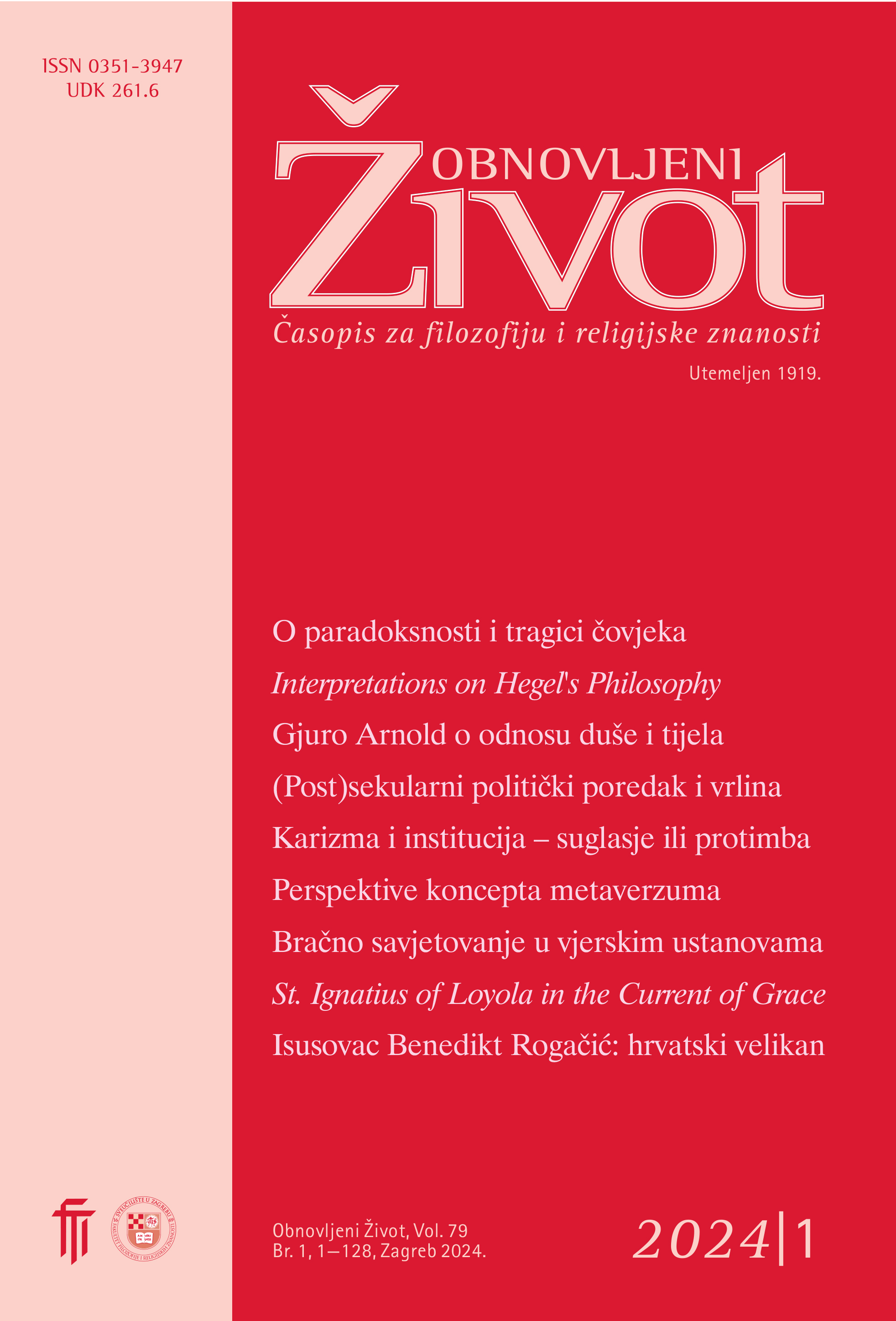Gjuro Arnold on the Soul–Body Relationship
Analysis of the Textbook Psychology for Secondary Schools
Keywords:
Gjuro Arnold, soul, body, philosophy, psychologyAbstract
In this article the author analyses the relationship between the soul and the body as outlined in the textbook Psychology for Secondary Schools (1916) by Gjuro Arnold (1853–1941), professor of philosophy and pedagogy at the University of Zagreb. Arnold’s thesis is that the body affects the soul, and the soul affects the body, but that all parts of the body are not equally connected to the soul and, vice versa, the soul does not directly affect all parts of the human body. Furthermore, by elaborating the problem of soul and body, the article will also describe Arnold’s views on psychology. The relationship between soul and body is seen from the perspective of experimental psychology. However, the focus of Arnold’s interest was the soul. This indicates that Arnold both accepted the experimental and naturalist approach to psychology, and at the same time advocated the return of psychology to more philosophical methods. The fact that Arnold wavered between scientific determinism and a more libertarian approach can be justified by the fact that Psychology for Secondary Schools is, after all, “only” a textbook, and that, for pedagogical reasons, it is expected as such to give an overview of accepted doctrines to students rather than the author’s personal philosophical views. However, this apparent inconsistency also points to certain concerns in Gjuro Arnold’s philosophy seeing as he followed and accepted the scientific achievements of his time.
Downloads
Published
Issue
Section
License
Jednom prihvaćeni članak obvezuje autora da ga ne smije objaviti drugdje bez dozvole uredništva, a i tada samo uz bilješku da je objavljen prvi put u Obnovljenom životu. Uredništvo će obavijestiti autora o prihvaćanju ili neprihvaćanju članka za objavljivanje.
Članci objavljeni u časopisu se, uz prikladno navođenje izvora, smiju besplatno koristiti u obrazovne i druge nekomercijalne svrhe.


